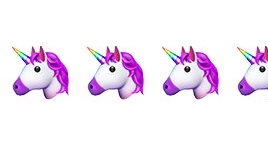Batter up! Welcome Unicorns, old and new! Have you been keeping your pitching arm warmed up during off-seasons? Worked on hitting the curveballs? Or just put in extra time on working on your chewing gum game out in left field? I’m kidding, sluggers. I hope everyone is happy and ready to dive into a brand-new series with me.
I know I talk a lot about having favorite movies growing up in this column, but the original A League of Their Own movie (1992) is literally one of my top five movies of all time. (One of the others is Thelma and Louise. And no, I don’t just have a thing for Geena Davis.) So when I saw that Amazon Prime was fleshing out the stories into a full-fledged series — and in the trailer I caught a fleeting glimpse of a bi love triangle — I knew I had to hop on covering it for the Scale like the last streetcar of the night. Which leads us to today.
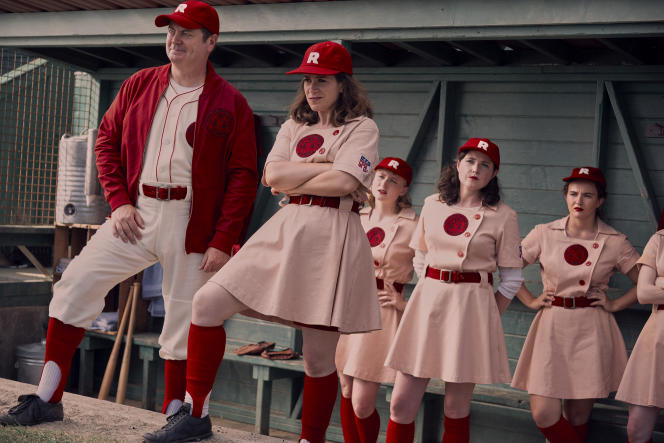
Before I get too deep into this review, I should go over a few disclaimers and ground rules. First and foremost, there will be SPOILERS for the 2022 comedy-drama in this column. Also if content warnings are your thing, heads up for (but not only): cheating, misgendering, homophobia, and other harmful words directed at historically oppressed groups. If you’re concerned one may come up that I have not talked about, this site does a good breakdown of a lot of triggers so you can double-check before I continue. Finally, if this is your first time reading the Scale (welcome!), we talk all about the metric here.
A League of Their Own as a series covers essentially two storylines: Carson Shaw (Abbi Jacobson, who also created and executive produced the show), a catcher who gets into the Rockford Peaches, one of the first all-female Major League baseball teams, and Maxine Chapman (Chanté Adams), a phenomenal black pitcher who is not afforded the chance to even try out for the league but is determined to still find a way to be a pro baseball player.
What I Liked:
This show is so delightfully bi and queer and all the not-straight things I can think of that I had to keep myself from squealing during every episode. Carson — who is already married to soldier Charlie (Patrick J. Adams) who is off fighting World War II — finds herself drawn to magnetic and charismatic ball player Greta (D’Arcy Carden) in irresistible ways that are new and challenging for her. We not only get to see Carson’s struggles and joys with her newfound love, but we also get Greta who knows what it’s like to operate as a closeted woman in the ‘40s and gives insight into what this life was really like. Plus it’s a bi actor playing a bi character! This still isn’t common enough, for my taste.
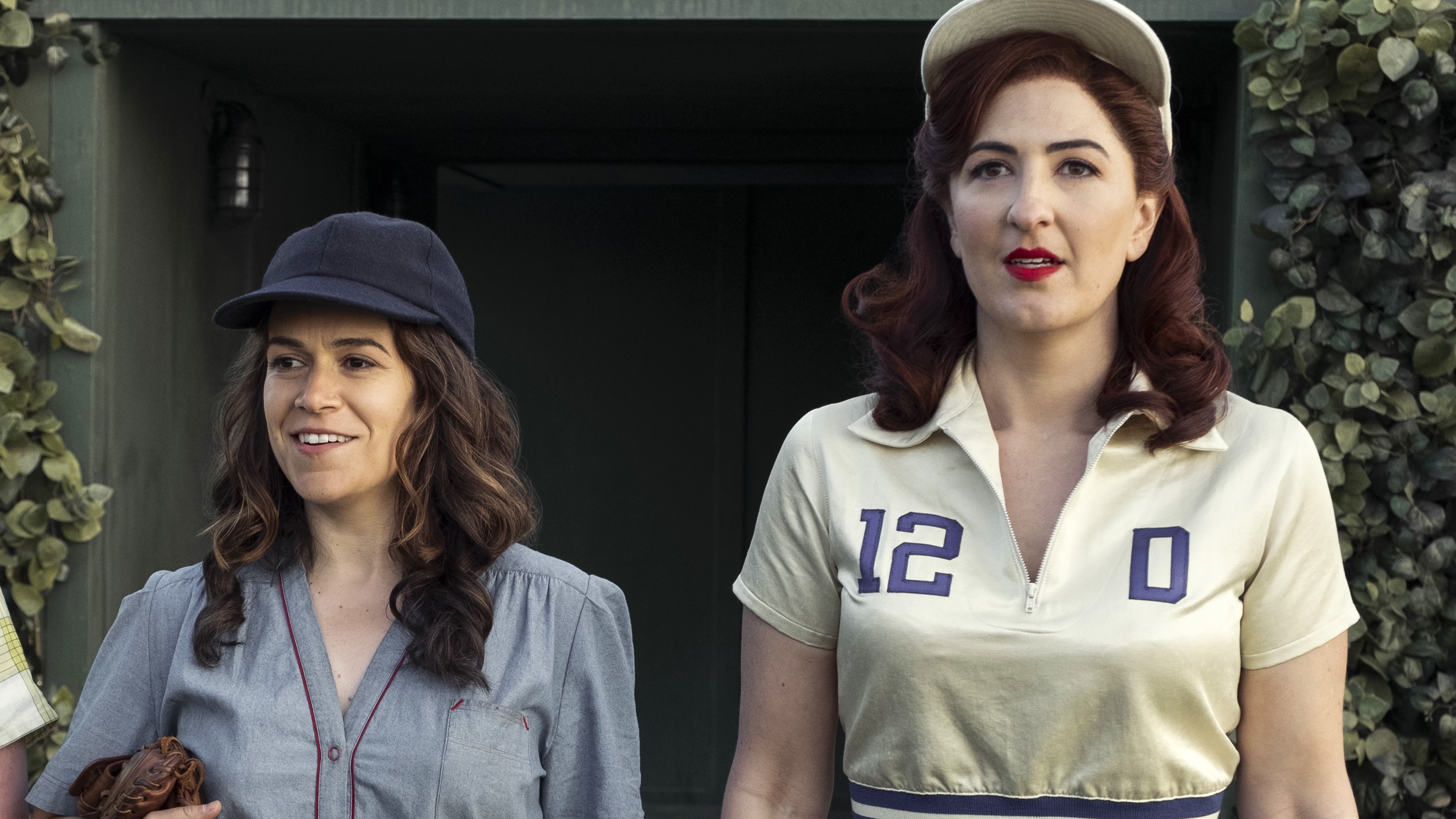
And that, to me, is a vital difference between my beloved 1992 movie and what we see going on here — many may love the classic film, but whole generations grew up without knowing that these teams were made up of many closeted queer women — many of whom found their soulmates on their professional teams. In fact, much of the public expressed surprise at this revelation when the documentary A Secret Love premiered a few years ago, following the lives of a same-sex couple who are some of the last surviving members of the famed league. This series showed the real, personal stakes that closeted queer women went through.
But it also makes sure to show a more intersectional view of women pushing the envelope in this regard. At equal weight is the storyline and development of Maxine, who shows both the struggles of color in the workplace and getting seen for her worth, as well as her conflicts about being a queer woman. And all of it is shown with a complex vibrancy that was literally seen at only a glance in the original film.
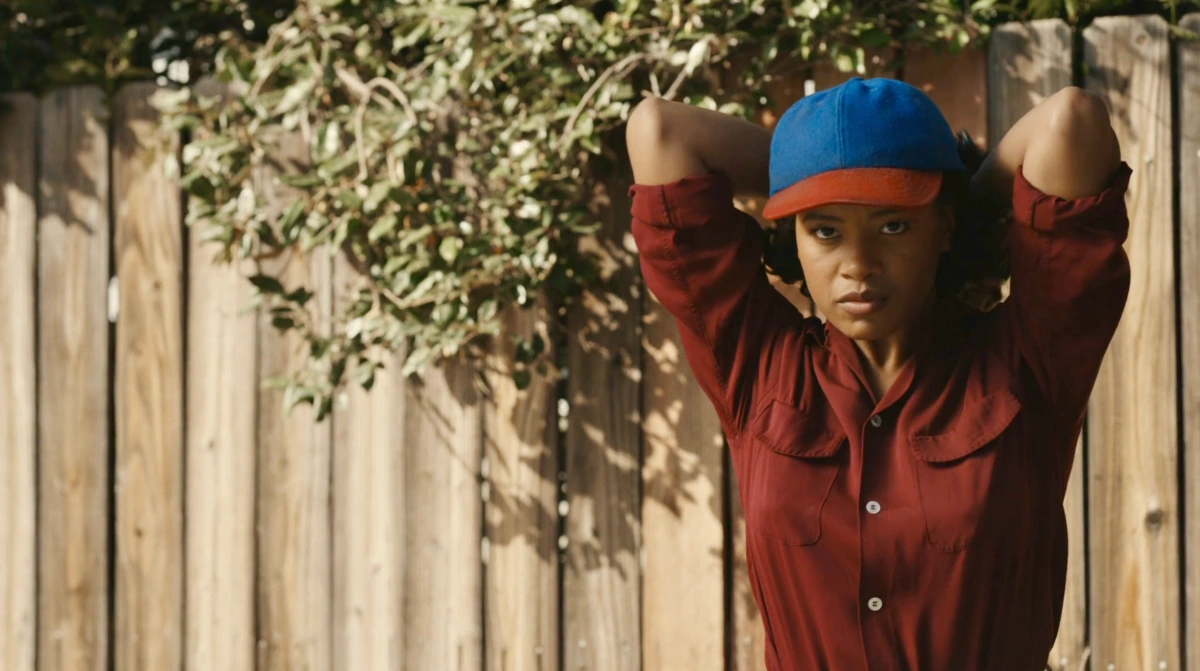
The story also shows their delight and how they fought to get themselves recognized and seen for their worth as queer women as well as ball players. Even smaller storylines and asides all show diligent research into getting the verisimilitude of this particular flashpoint in women’s history to be as accurate as possible as well as entertaining.
What I Didn’t Like:
What do I always not like? No one uses the word “bi”. Sure, we get antiquated, homophobic slurs that many of the younger generations have either reclaimed (“queer”) or more often forgotten (“invert”), but still no one manages to get that word out for what is clearly a whole bunch of bi characters. Damn shame.
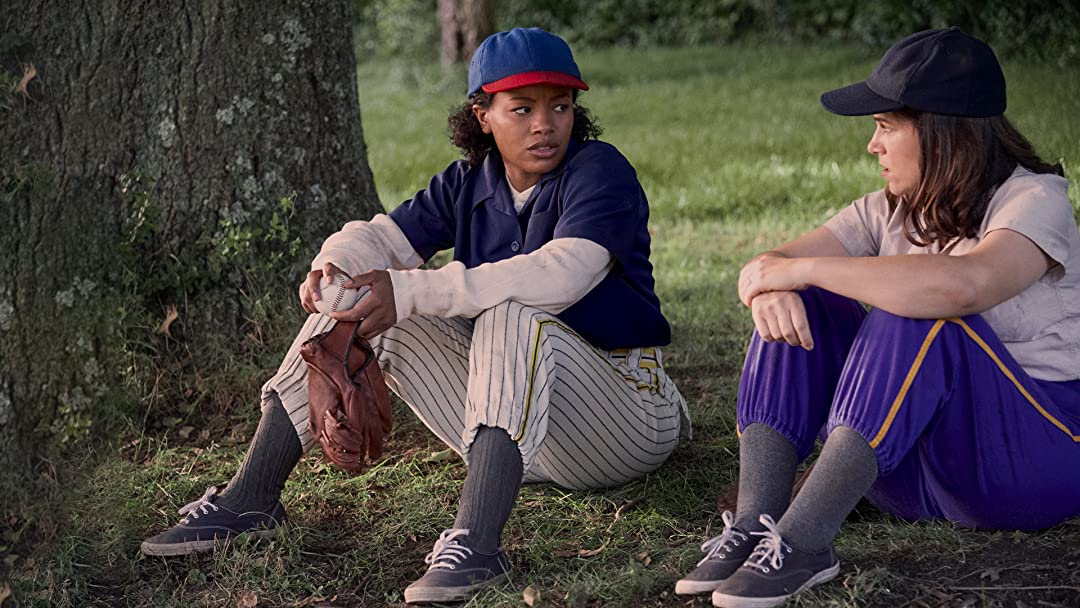
The Rating:
I will always love the original movie. And I’m not at all a stickler about updated reworking of tried-and-true stories, as usually each adaptation has its own merit (and their creation doesn’t erase the presence of the original movie). But this is one of those times where the new A League of Their Own hit levels of representation and fleshing out of bi characters the original could only dream of (or that Rosie O’Donnell did her best to make subtext into text). Believe me when I say this show is fun, meaningful, well-done, and hits it out of the park — both with story and with bi representation.
